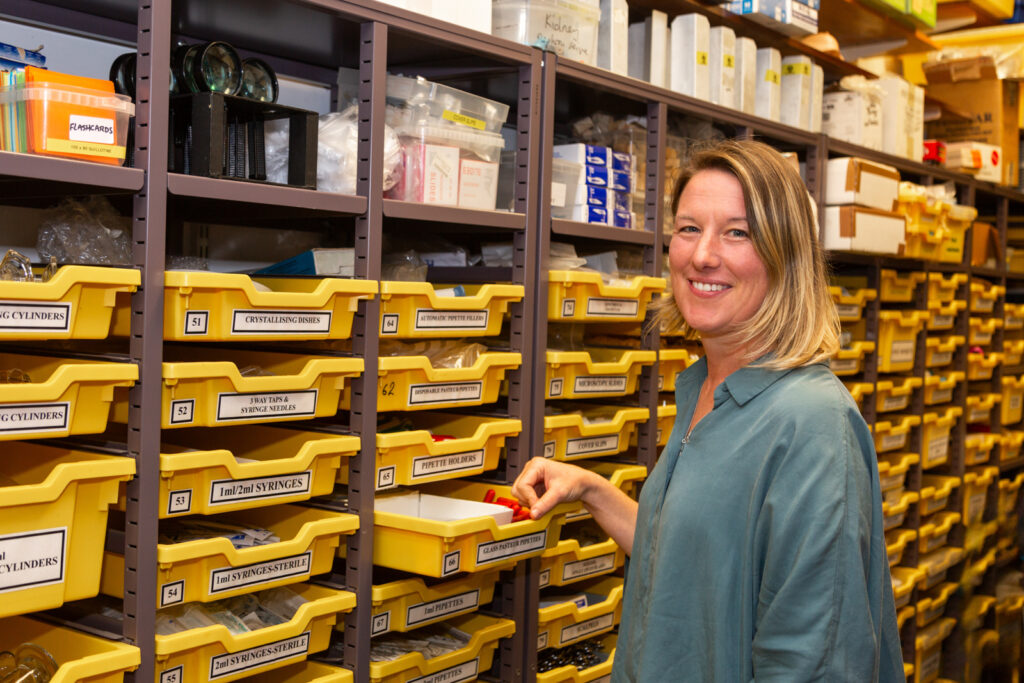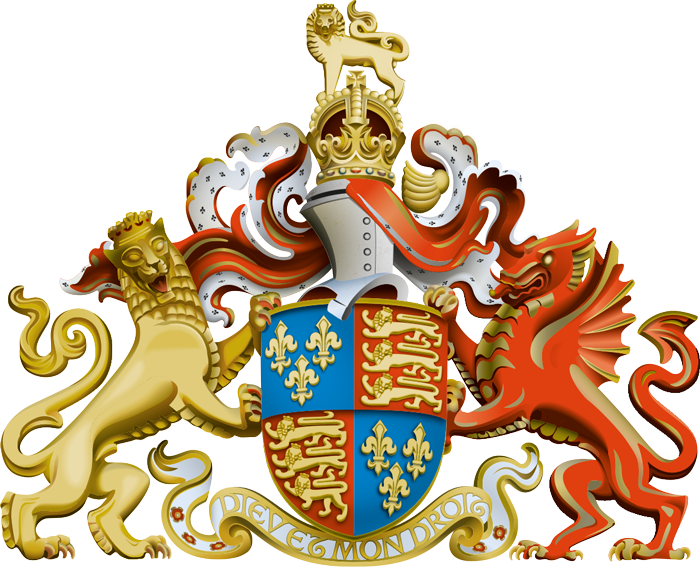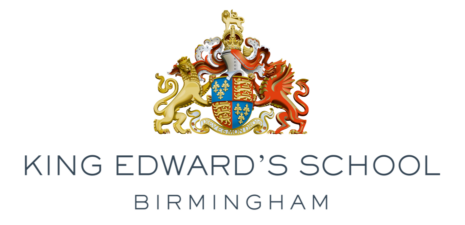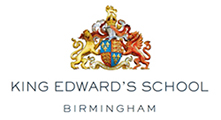Biology
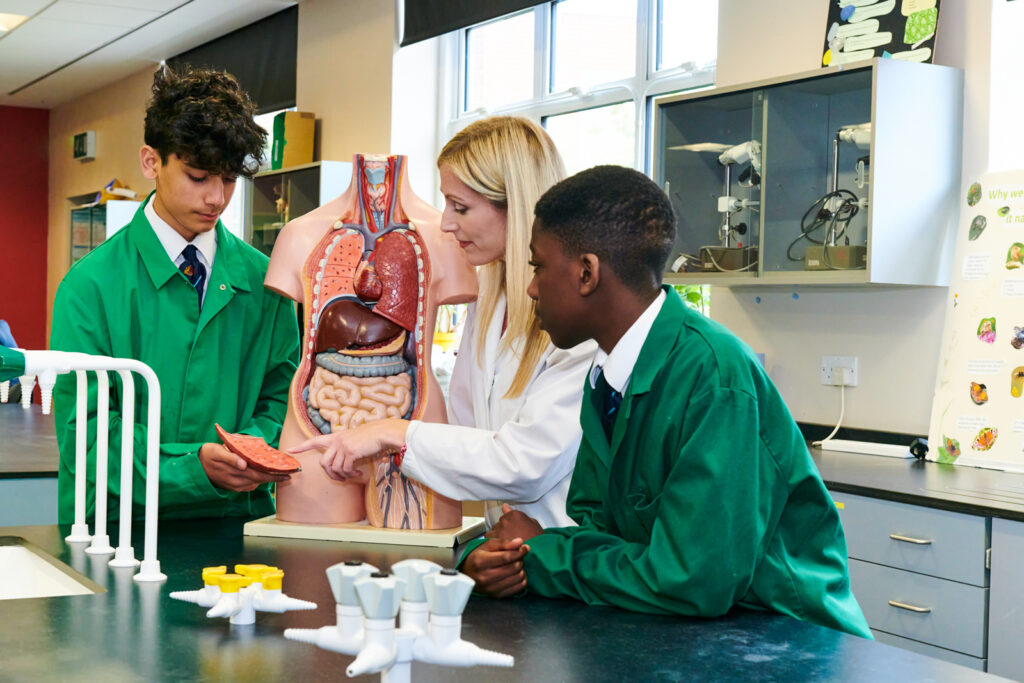
Biology is the study of life itself and with recent pioneering developments in genetics, stem cell research and biotechnology, it is an exciting time to study this dynamic science.
The advancement of scientific technologies has also demonstrated how interconnected all organisms are, the importance of biodiversity and the care we need to give our ecosystems in order to protect our world for future generations. To understand this interconnectedness we study a huge variety of really interesting topics such as physiology, organic molecules and ecology. This knowledge base is essential for careers in sustainability, healthcare and scientific research
Throughout all years, investigative and practical work is key, with every lesson taking place in specialised laboratories; we pride ourselves on excellent high quality practical work. The department has access to a field studies classroom which is adjacent to a Site of Special Scientific Interest (SSSI) woodland.
After the general science course taught in Year 7, Biology is taught by subject specialists through to the Sixth Form.
The standard Key Stage 3 criteria is not appropriate for our academic students, so the Department has created a more challenging enquiry based scheme of work for our Year 8 students; this also suits the learning styles of our students making sure they are active and learn by doing with investigative skills and practical work being core to every lesson. The Department selects topics that the students have a keen interest in and that will help them in the future such as microbiology, biodiversity and human physiology.
GCSE commences in Year 9 following the Edexcel International GCSE, with practical work remaining an important part, building on the theory as they go through Years 10 and 11. All Year 10 pupils take part in the Biology Challenge competition, in which most boys usually gain an award from Gold to Bronze.
Biology is an incredibly popular subject at post-16 studies due to its diverse nature, excellent academic results and future career opportunities. The Department ensures our class sizes are small so that the needs of every individual student can be met, maximising progress.
The International Baccalaureate Diploma course is followed for our Year 12 and Year 13 students with both the Standard Level (SL) and Higher Level (HL) courses being available. The IB Biology course builds on the knowledge gained from GCSE, turning our students into great biologists; being able to investigate the living world at all levels using many different approaches and techniques.
At one end of the scale is the cell, its molecular construction and complex metabolic reactions. At the other end of the scale, biologists investigate the interactions that make whole ecosystems function. While the scientific method may take on a wide variety of forms, the emphasis is on a practical approach; undertaking a wide array of practical work such as DNA fingerprinting, genetic modification, immobilised enzymes, dissections and much more.
Ecological theory and practical skills are taught on a four-day field course at a Field Studies Centre. Students will also complete a piece of coursework (worth 20% of their final grade) known as the individual investigation, where they will design their own research question, develop the method, collect the data and analyse the results. This helps the students develop independent working skills and allows them to understand what it is like to be a true research scientist, an excellent preparation for university.
Through the Nature of Science part of the course, students learn to not take information at face value, they begin to understand the theories that our biological concepts are based on, how these theories have been established; through scientific communication, global co-operation and thorough testing. This leads to many discussions on the discoveries that remain to be made and the progress that will occur in the 21st century; discoveries that may well be made by one of our own students.
Future careers
The field of Biology offers an abundance of exciting career paths with endless possibilities. In the healthcare sector, one can explore diverse options such as physiotherapy, medical research, optometry, biomedical science, medicine, dentistry, pathology, neuroscience, genetics analysis, and prosthetics, among others.
For those with a passion for the natural world, Biology also presents various specialisations like Marine Biology, Ecology, Microbiology, Virology, and Zoology, where students can make significant contributions to understanding and preserving our planet’s biodiversity.
Beyond traditional biological careers, studying Biology equips students with analytical skills that have far-reaching applications. These skills open doors to fields like law, accountancy, teaching, advertising, and more.
Beyond the classroom
Meet the Head of Department
Ms Ferguson
Ms Ferguson is a dedicated educator with a passion for Biology. Her diverse career and academic studies (MSc Distinction Hydrogeology, BSc 1st Hons Biology with French) have given her a thorough understanding of biology both in the classroom and in the field.
She is a highly experienced teacher having held positions as Head of Lower School Science, Head of Careers and the most recent progression to Head of Biology. She believes in inquiry-based learning and loves to incorporate practical work into her lessons to engage and inspire the students. She has positive aspirations for the future, aiming to create students that respect the biodiversity of the world.
